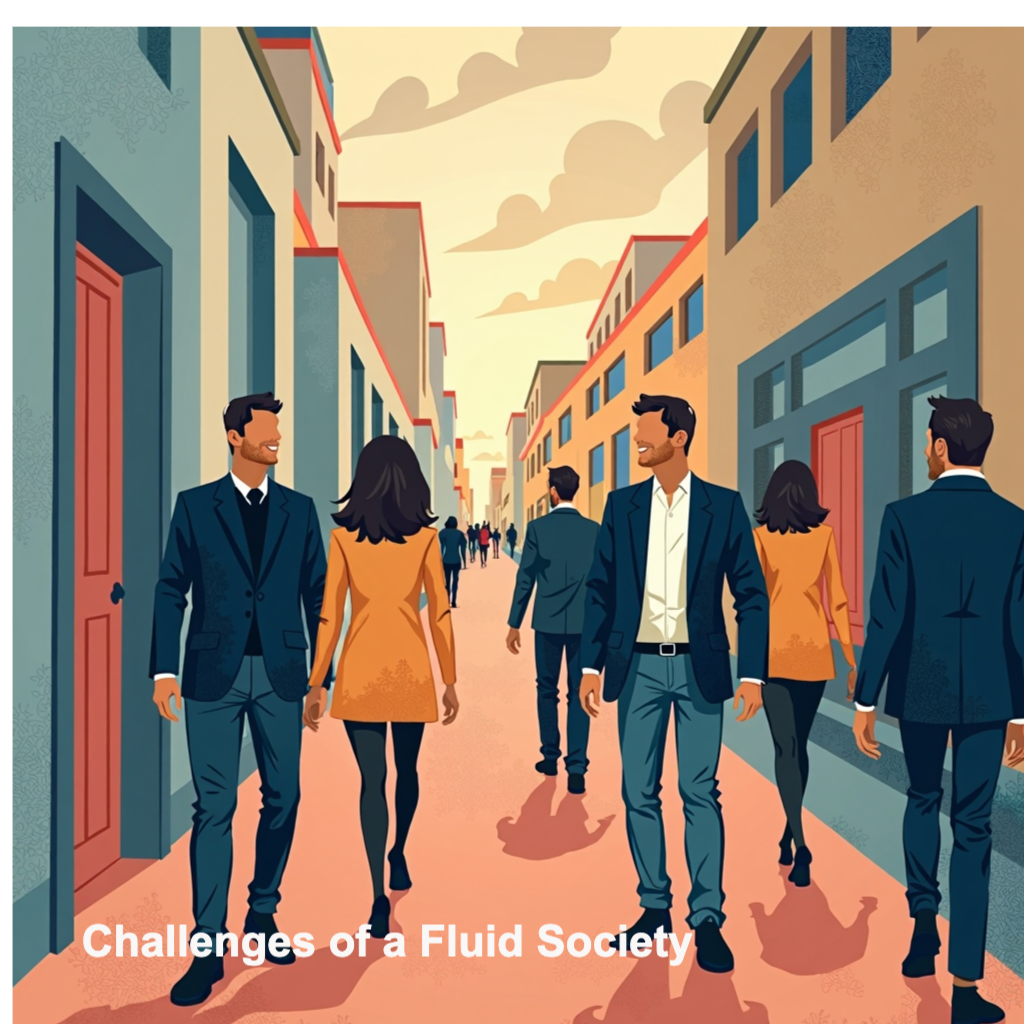The Struggle of Black-and-White Thinkers in a Gray World
Navigating Certainty in an Uncertain World
In a world where ambiguity reigns and adaptability is a prized skill, those who see life through a black-and-white lens—fact-driven, logic-first individuals—often face unique challenges. These individuals thrive on structure, certainty, clear distinctions between right and wrong, truth and falsehood. They seek order in a society that increasingly values fluidity, subjectivity, and open-ended interpretations.
While their approach has undeniable strengths—such as precision, reliability, and strong analytical skills—it can also lead to struggles in today’s rapidly shifting cultural landscape. From workplace dynamics to social interactions and even their mental well-being, black-and-white thinkers face a world that often seems at odds with their natural inclinations.
The Appeal of Certainty
Black-and-white thinkers rely on clear, fact-based realities to navigate life. For them, certainty is comfort. They prefer:
• Clear rules and boundaries
• Evidence-based decision-making
• Logical consistency
• Predictability in outcomes
These traits make them exceptional in fields that demand precision, such as engineering, law, mathematics, and data science. They are the ones who ensure that bridges don’t collapse, legal arguments remain solid, and scientific research remains untainted by personal biases.
However, in a world that increasingly leans into relativism, subjectivity, and nuance, this mindset can create friction.
The Challenges of a Fluid Society
1. Shifting Social Norms
Today’s culture celebrates diversity in thought, identity, and interpretation. Many social issues no longer have clear right-or-wrong answers, and definitions that once seemed stable (such as gender, truth in media, and even the meaning of success) are now evolving.
For black-and-white thinkers, this can be disorienting. They may struggle with concepts that lack clear boundaries or definitive conclusions, leading to frustration or a sense of losing control.
2. Workplace Adaptability
Modern workplaces value flexibility and the ability to pivot as circumstances change. Companies emphasize collaboration, compromise, and “soft skills” over rigid structures. While black-and-white thinkers excel in structured environments, they may struggle in workplaces where policies and expectations are constantly shifting.
They may also find themselves at odds with decision-making processes that rely on subjective factors, such as emotional intelligence or social consensus, rather than objective facts alone.
3. Interpersonal Relationships
In personal and professional relationships, black-and-white thinkers can come across as rigid, dismissive, or overly critical. Since they rely on clear logic, they may struggle to engage with emotions, gray areas, or personal interpretations of reality.
This can lead to difficulties in:
• Navigating nuanced conversations where emotions play a significant role
• Understanding why someone might make a choice that isn’t entirely logical
• Accepting that others may prioritize subjective experiences over hard facts
4. Decision Paralysis in a Culture of Overchoice
Today’s world presents an overwhelming number of choices, from career paths to social values, and even what media to trust. Many people embrace this freedom, but black-and-white thinkers may struggle with decision paralysis when clear right answers don’t exist. They might either refuse to make a choice without enough certainty or double down on rigid perspectives to create an illusion of stability.
5. Struggles with Changing Information
Science, politics, and even historical narratives are constantly evolving. What was considered a fact yesterday might be re-evaluated today. For someone who thrives on certainty, this can create frustration. They might resist new information or feel betrayed when long-held truths are questioned.

Coping Strategies: Thriving in a Gray World
While the world is unlikely to return to a purely black-and-white framework, black-and-white thinkers can develop strategies to navigate and even thrive in today’s fluid culture:
• Develop Comfort with Uncertainty – Learning to accept that not all questions have clear answers can reduce anxiety and frustration.
• Expand Emotional Intelligence – Acknowledging the role emotions play in decision-making can help improve relationships.
• Embrace Selective Flexibility – Understanding when to apply rigid logic and when to allow for nuance can be a game-changer.
• Seek Environments That Value Precision – While society may be fluid, there are still fields and communities that thrive on clarity and structure. Finding these spaces can provide a sense of stability.
• Practice Active Listening – Engaging with differing perspectives without immediately judging them as right or wrong can broaden understanding.
Conclusion
Black-and-white thinkers play a vital role in society. They provide clarity where there is confusion, precision where there is ambiguity, and structure where there is chaos.
However, in a world that increasingly celebrates fluidity, their rigid mindset can become both a strength and a challenge. By developing adaptability without compromising their core strengths, they can navigate today’s complex cultural landscape without feeling lost or alienated.






